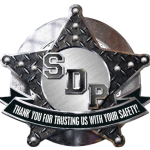As a former addictions counselor, I’ve spent years listening to clients share their deepest emotional struggles. Drawing from that experience, I put this article together as a baseline for those coping after sexual assault. Recovery is a deeply personal journey, but incorporating self-care into your routine can play a powerful role in guiding emotional healing. Start with basics like maintaining a balanced diet and prioritizing sleep to boost your energy and resilience. Engage in activities you love, and try adding mindful practices, like deep breathing or yoga, to help maintain emotional balance. Reach out and lean on your support network, be it trusted friends, family, or professional counselors, they’re essential during healing. Remember, learning to set your own boundaries and expressing your needs asserts control over your wellbeing. As you progress, you’ll discover more tailored strategies to foster healing.
Advantages of Self-Care Practices

You’re about to learn how self-care practices can offer immense benefits, especially after enduring a traumatic event like sexual assault. Engaging in self-care activities can alleviate everyday pressures and promote productivity, allowing you to focus your energy on healing and recovery. These practices can kickstart your emotional healing process, greatly boost your self-esteem, and spur personal growth. Personal security alarms, which emit up to 130dB sound, can also provide reassurance and enhance your sense of safety, contributing to your emotional well-being. The non-slip grip of personal panic alarms ensures secure handling during emergencies and can be particularly useful in panic situations. Let’s explore these advantages further, so you can harness the power of self-care on your journey to recovery.
Initial Emotional Healing Advantage
Why is self-care so crucial after experiencing sexual assault? It’s because self-care practices, including trauma processing and mindfulness, provide an initial emotional healing advantage. These practices help you address the pain and fear, enabling you to regain control over your emotions and reactions.
- Reduced PTSD Symptoms: Techniques such as Cognitive Behavioral Therapy (CBT), Prolonged Exposure Therapy (PE), and Somatic Experiencing (SE) help alleviate PTSD symptoms. They allow you to process the trauma and reduce avoidance behaviors.
- Emotional Regulation: Mindfulness practices like meditation and yoga help you manage stress and balance emotions. Rhythmic activities like dancing can be healing and help you regain control over your body.
- Building Support Networks: Social support from loved ones, therapists, and new friends you make through various activities is essential for recovery. Additionally, seeking professional help early can potentially prevent the development of PTSD, highlighting the importance of early intervention in trauma recovery.
Boosting Self-esteem Benefit
In the aftermath of sexual assault, commencing on a journey of self-care offers a pathway towards rebuilding your self-esteem. This process can be empowering, allowing you to regain control over your life.
Remember, building up self-esteem doesn’t happen overnight, but with consistent practice of self-care strategies, you can see significant improvement.
There are several self-esteem strategies to take into account:
- Counseling: This provides a safe space where you can express your feelings and experiences. It’s a critical step in rebuilding your confidence.
- Self-Compassion: Encourage positive self-talk and show yourself compassion. This is fundamental for boosting your self-esteem.
- Setting Boundaries: Learn to set boundaries and engage in healthy relationships. This is essential for your empowerment and confidence building.
- Creative Pursuits: Engaging in creative activities can serve as a therapeutic outlet to express emotions, reducing feelings of isolation (reducing isolation).
Incorporating these practices into your recovery plan can help you regain your self-worth and confidence.
Promoting Personal Growth Advantage
Taking the reins of your life after a sexual assault can feel monumental, but self-care practices offer the advantage of promoting personal growth.
This growth isn’t merely about moving past the trauma; it’s about transforming it into a source of strength. By engaging in self-care, you’re not just healing, you’re also fostering emotional resilience that will serve you in all aspects of your life.
Here are three key practices to take into account:
- Mindfulness and Meditation: Regular practice can reduce stress and anxiety, promoting emotional resilience.
- Physical Activity: Activities like yoga or tai chi can alleviate PTSD symptoms and enhance your emotional well-being.
- Nurturing Trust and Healthy Relationships: Building trust with supportive individuals is essential. Learn effective communication skills to express your needs and set boundaries.
Furthermore, seeking professional therapy can provide much-needed guidance and a safe space for processing emotions, thereby playing a significant role in the healing process. In fact, among the services offered by organizations such as the Maryland Coalition Against Sexual Assault (MCASA), individual counseling sessions can be instrumental in helping survivors rediscover their authentic selves.
Understanding Self-Care Basics
Everyone needs to understand the importance of basic self-care, particularly after experiencing a traumatic event like a sexual assault. This includes you. You must begin by prioritizing restorative sleep and nutritious eating.
Regular physical exercise and practicing mindfulness, such as meditation, can also boost your emotional resilience.
Self-care routines should extend to your emotional health as well. Express your emotions in a healthy way, maybe through writing, talking, or journaling.
Consider therapeutic practices such as deep breathing, art therapy, or even professional counseling. Engaging in hobbies you love, repeating positive affirmations, and seeking support from trusted friends or groups can further promote emotional wellness.
Including personal safety tools, like a compact mini stun gun, can empower individuals and contribute to their sense of security.
Physical self-care is equally essential. Wear clothes that make you feel comfortable. Spend time outdoors.
Yoga, meditation, or any activity that releases physical tension is beneficial. Maintain healthy habits, like a consistent sleep schedule and balanced diet, and try to avoid any triggers that cause stress or discomfort.
Lastly, integrate these self-care practices into your daily life. Start small, track your progress, and treat self-care as a non-negotiable appointment.
With time, you’ll witness the transformation it brings.
Beginning Self-Care Journey

Starting on your self-care journey might seem intimidating at first, but remember, it’s all about taking small, consistent steps towards healing. To begin, invest time in establishing a routine with simple self-care methods, such as a morning walk or a few minutes of deep breathing. These small actions can greatly contribute to your emotional wellbeing.
| Self-Care Routine | Supportive Resources | Emotional Resilience |
|---|---|---|
| Start Small | Support Groups | Positive Affirmations |
| Consistency | Hotlines | Self-Expression |
| Physical Activity | Therapy Options | Boundary Setting |
| Mindfulness | Educational Resources | Self-Compassion |
| Professional Help | Legal Assistance | Healthy Habits |
Keep in mind that self-care is not a one-size-fits-all approach. What works for one may not work for another. Be patient with yourself as you navigate your healing journey. Be flexible and adapt your routine as needed. Remember, each act of self-care, no matter how small, is a step towards healing. Don’t hesitate to seek professional guidance to tailor your self-care practices to your unique needs. You’re not alone, and it’s okay to ask for help.
Identifying Self-Care Needs
After establishing a self-care routine, the next step in your healing journey is to identify your specific self-care needs. These needs can be physical, emotional, social or mindful.
Physical self-care might involve establishing a routine, engaging in physical exercise, prioritizing healthy eating, ensuring good sleep hygiene, or practicing relaxation techniques.
Emotional needs could involve therapy or counseling, joining support groups, journaling, using creative expression, or setting boundaries. Developing self-care strategies here can help build emotional resilience.
Social self-care might mean maintaining social connections, getting involved in your community, reaching out to supportive networks, practicing healthy communication, or seeking empathy and understanding.
Mindful self-care could include mindfulness practices, self-compassion, positive affirmations, grounding techniques, or developing self-awareness.
Additionally, it is crucial to remember that unaddressed trauma can reinforce avoidance behaviors and negative self-beliefs, therefore, seeking therapy is beneficial as self-processing may overlook critical insights. This understanding can help you in the progression of your healing journey, emphasizing the importance of confronting, rather than avoiding trauma.
Answers to Common Questions
What Are the Legal Steps to Take After a Sexual Assault?
After a sexual assault, your first legal steps involve reporting the incident to the police. Understand your legal options, explore both civil and criminal routes, and familiarize yourself with reporting procedures to seek justice.
How Can Therapy Assist in Emotional Recovery Post-Sexual Assault?
Therapy can greatly aid your emotional recovery post-assault. It helps in trauma processing, reducing guilt and anxiety, and developing coping strategies. Therapies like CBT, TF-CBT, PE, and EMDR can improve your resilience and quality of life.
What Support Groups Are Available for Sexual Assault Survivors?
You’ll find peer support groups like Hope & Healing and HAVEN invaluable. They’re like lighthouses, guiding you through recovery. Online resources such as directories or hotlines can connect you to these life-changing communities.
How Can Family and Friends Support a Sexual Assault Survivor?
You can support a sexual assault survivor by offering emotional support and active listening. Listen without judgment, show empathy, and respect their boundaries. Encourage self-care and professional help, while maintaining your own well-being too.
What Are Some Signs That Professional Help Is Needed After Sexual Assault?
You might need professional help if you’re facing severe emotional distress, persistent trauma symptoms, relationship difficulties, physical discomfort, or suicidal thoughts. Recognizing emotional triggers and ineffective coping mechanisms are key indicators too.
Bottom Line
You’re the captain of your ship, steering through rough waters. Remember, self-care isn’t selfish, it’s vital. Begin by identifying your needs, and don’t rush, it’s your journey, not a race. Keep a steady hand on the wheel, ensuring your emotional and physical safety. Like a well-stocked first aid kit, self-care tools are essential. Use humor sparingly, like a lantern in the fog, guiding you gently. Healing after trauma is tough, but with care and patience, you’ll weather the storm.




